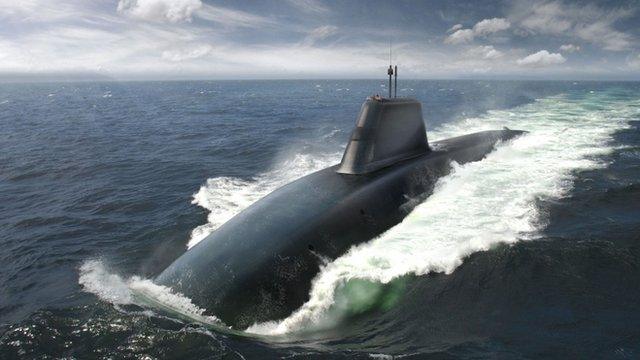Faslane protest: Thirty four arrests at nuclear base blockade
- Published
Anti-nuclear protesters are cut free during a demonstration at Faslane naval base on the Clyde
Thirty four people have been arrested following an anti-nuclear blockade of the Faslane naval base on the Clyde.
The Scrap Trident Coalition's Bairns Not Bombs demonstration aimed to shut down the base, which is home to the UK's Trident nuclear weapons system.
Police estimated that about 200 protestors took part in the demonstration as part of a series of events organised by Scrap Trident.
Organisers described the day as a "huge success".
Police Scotland confirmed that thirty two of the arrests were conducted by Police Scotland, while a further two arrests were made by officers from the Ministry of Defence.
Protestors had gathered outside gates to the base from 07:00 in an attempt to stop workers from entering.
The blockade was aimed at focusing attention on the UK's nuclear deterrent in the run up to next month's general election.
Cutting equipment
Organisers said - according to their estimates - there were up to 150 demonstrators outside the north gate, with 250 across all the gates.
Groups of protesters chained themselves together outside the gate ahead of the shift change at the base.
Police used cutting equipment to release protestors who blocked the road by chaining themselves together.
BBC Scotland reporter Julie Peacock, who was at the scene, said it took approximately 40 minutes, and in one case two and a half hours, to release each person from their chain.
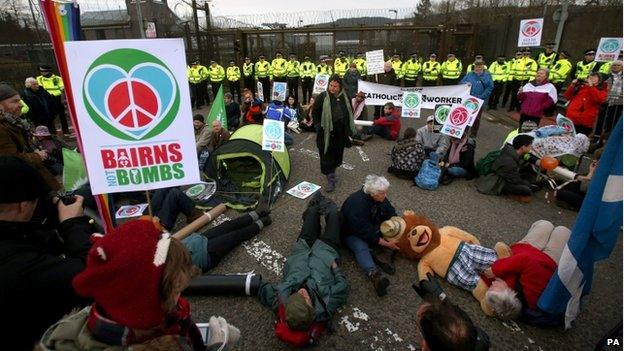
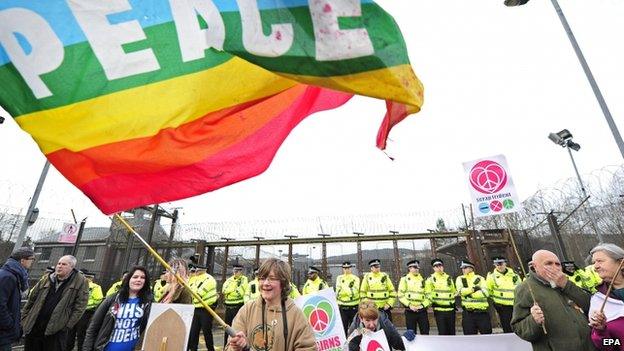
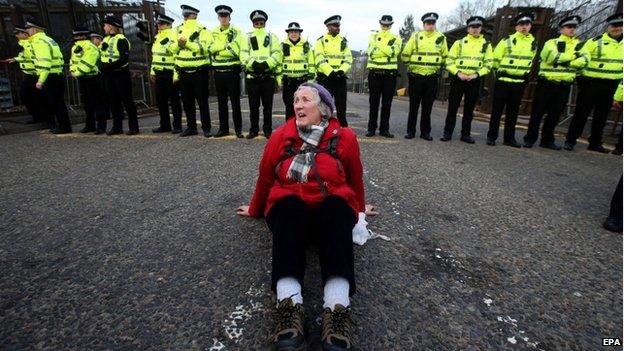
A Scrap Trident spokesman said: "This has been one of the most effective blockades in our experience with so many workers being unable to enter the base and such a relaxed, colourful and upbeat vibe to the whole protest.
"It has been wonderful to have the presence of people ranging in age from five to over 80, to have a member of our own Parliament sitting down with us, and so many others from diverse backgrounds.
"Trident is a hot topic at the General Election and this gives us hope that at last we can tackle the British state's addiction to monstrous and mindless violence.
"We are also aware that even among the workers in the base and the police who attended today there is growing support for removing the WMD stain from our shores."
A Faslane spokesman said: "The MoD recognises the democratic right of individuals to participate in lawful and peaceful protest activities."
He added that the operational output of the base was not affected by the protest activity as they had contingency plans in place.
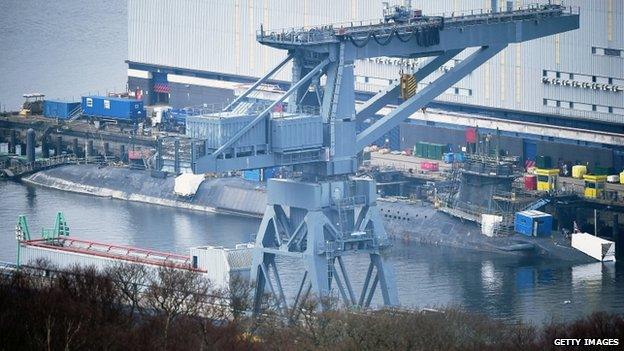
Faslane is home to the UK's nuclear submarine fleet
Over the weekend leading figures in music, the arts and science, including Nobel prize winner Prof Peter Higgs, comedian Frankie Boyle and Mercury prizewinning band Young Fathers, called for the nuclear deterrent to be scrapped, in a letter to the Observer.
Thousands attended a march and rally in Glasgow city centre earlier this month to call on the UK government to abandon plans to replace Trident.
The nuclear weapons system came to the fore of the election campaign last week after Defence Secretary Michael Fallon confirmed that a Conservative government would go ahead with the construction of four new Trident nuclear missile submarines to replace the existing fleet of ageing Vanguard-class boats.
He warned that the deterrent would be put at risk by the prospect of Labour leader Ed Miliband entering into a pact with the anti-Trident SNP in the event of a hung parliament in May.
Fully committed
Mr Miliband insisted that Labour is fully committed to renewing the Trident submarine missile fleet.
The SNP opposes the principle of nuclear weapons, with leader Nicola Sturgeon having said that halting the renewal of Britain's nuclear deterrent would be her "absolute priority" if her party held the balance of power in May.
The Scottish Greens - whose co-convener Patrick Harvie was taking part in the demonstration - also wants the UK's nuclear weapons scrapped.
The Liberal Democrats have said it is "extremely expensive and unnecessary" to replace all four Trident submarines and have proposed a fewer number of vessels instead, which would only be deployed under increased threat from a nuclear-armed country, as opposed to being permanently on patrol.
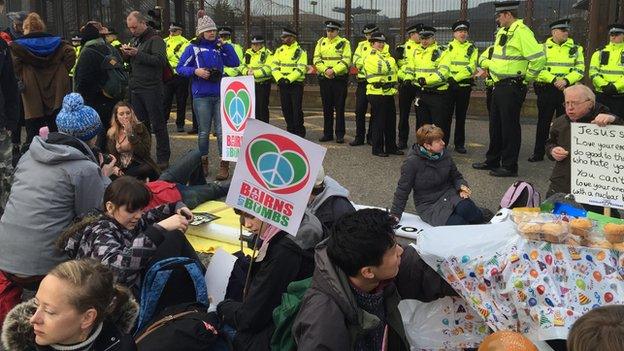
The protest started outside the main entrance at 07:00
- Published23 May 2017
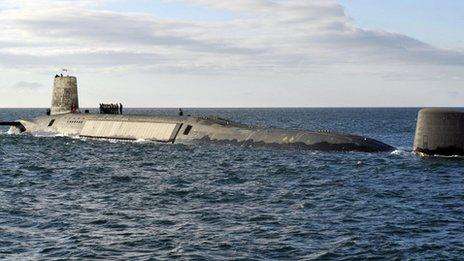
- Published9 April 2015
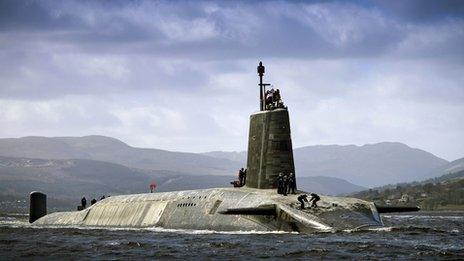
- Published9 April 2015
